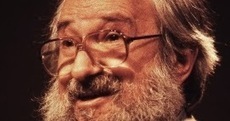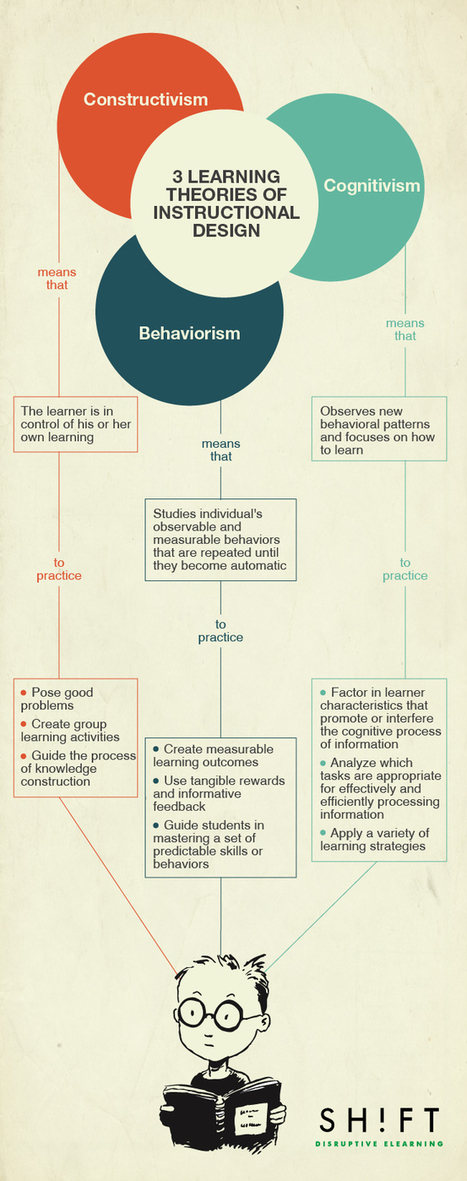Seymour Papert is a constructionist (not to be confused with constructivist), who worked with Jean Piaget and built on his theories to redefine how education could function on a constructionist basis. The Logo programming language was a tool he wrote to support this approach to learning and he has been a stern critic of traditional schooling. A politically socialist activist in South Africa, he claims that his work in education came from observing irrational racism and he has worked with disadvantaged groups all of his life. He cofounded the Artificial Intelligence Lab at MIT with Marvin Minsky and was a founding faculty member of the MIT Media Lab.
Get Started for FREE
Sign up with Facebook Sign up with X
I don't have a Facebook or a X account
 Your new post is loading... Your new post is loading...
 Your new post is loading... Your new post is loading...
|

Tina Jameson's curator insight,
June 19, 2014 11:33 PM
A nice visual of three predominantly observed theories of learning: 
José Antônio Carlos - O Professor Pepe's curator insight,
June 20, 2014 7:21 AM
Ótimo infográfico com dicas sobre as três teorias de aprendizagem (construtivismo, behaviorismo e cognitivismo) mais comuns nos programas de design instrucional. Simples sem ser simplista. 
Darleana McHenry's curator insight,
June 26, 2014 9:19 AM
I love stuff like this. It makes me think about what I am doing and why :-)

Agron S. Dida's curator insight,
March 6, 2014 2:42 AM
From inside the article: "Constructionism is based on two types of construction. First, it asserts that learning is an active process, in which people actively construct knowledge from their experience in the world. People don’t get ideas; they make them. This aspect of construction comes from the constructivist theory of knowledge development by Jean Piaget. To Piaget’s concept, Papert added another type of construction, arguing that people construct new knowledge with particular effectiveness when they are engaged in constructing personally meaningful products." 
Channylt's curator insight,
April 3, 2014 5:51 AM
A great article about Constructionism a hybrid pedagogy - a theory based upon collaborative, project-based and student ownership of learning resulting in a learning that is largely 'constructed' by the learner themselves. 
Paul Oliveri's curator insight,
April 6, 2014 1:23 AM
Constructionism, constructivism, learner centred, authentic, real world, active process, problem based, integration of technology in an authentic way and most importantly transformative.
With 63 scoopit interactions this article obviously resonates with the broader education community.
How do I use these principles to facilitate someone becoming a Paramedic via the distance mode of learning. I use technology to create learner centred, authentic and problem based activities to facilitate their learning.
Me I’m still just one of many resources available to them. |












